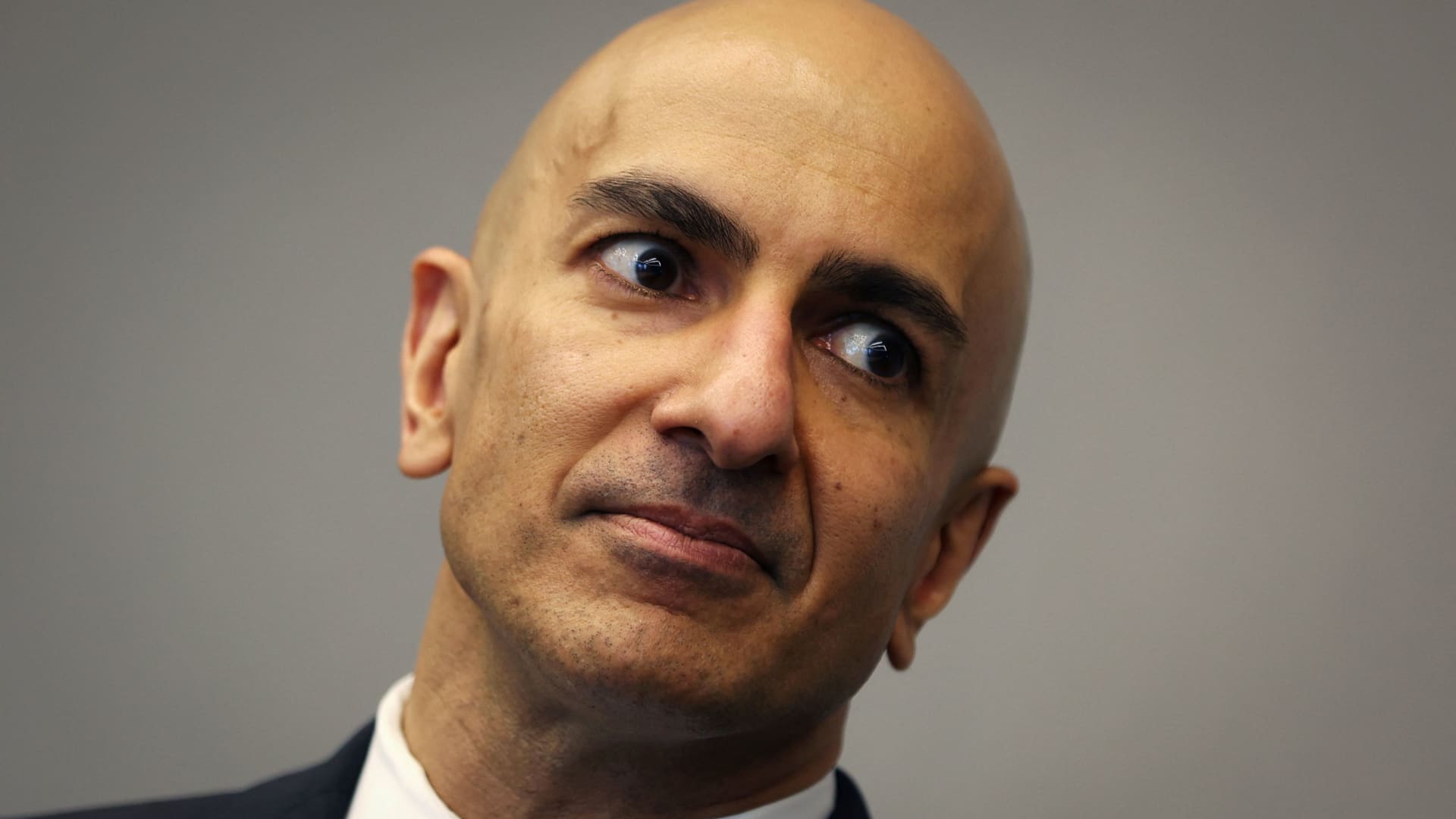Products You May Like
Minneapolis Federal Reserve President Neel Kashkari thinks there’s nearly a 50-50 chance that interest rates will need to move significantly higher to bring down inflation.
In an essay the central bank official posted Tuesday, he said there’s a strong case to be made that the U.S. economy is headed toward a “high-pressure equilibrium.” Such a condition would involve continued growth featuring strong consumer spending and “the economic flywheel spinning.”
In that instance, the inflation rate falls but stays above the Fed’s 2% target, posing a challenge for policymakers.
“The case supporting this scenario is that most of the disinflationary gains we have observed to date have been due to supply-side factors, such as workers reentering the labor force and supply chains resolving, rather than monetary policy restraining demand,” he wrote in a post titled, “Policy Has Tightened a Lot. Is It Enough?”
Noting that rate-sensitive areas such as housing and autos have held strong despite Fed tightening, Kashkari remarked, “These dynamics raise the question, How tight is policy right now? If policy were truly tight, would we observe such robust activity?”
Services inflation, excluding the cost of renting shelter, has been coming down, but has otherwise remained elevated, raising longer-term concerns.
“Once supply factors have fully recovered, is policy tight enough to complete the job of bringing services inflation back to target? It might not be, in which case we would have to push the federal funds rate higher, potentially meaningfully higher,” Kashkari said. “Today I put a 40 percent probability on this scenario.”
Of course, that still means he assigns a 60% chance of the Fed sticking its “soft-landing” goal, with inflation coming back to the goal without a harmful recession. He cited “the actual progress we have made against inflation and the actual labor market performance” as factors contributing to policymakers reaching their goal.
However, the comments come the same day as The Times of India published an interview with JPMorgan Chase CEO Jamie Dimon, in which the bank executive entertains the possibility that the Fed may have to take its benchmark rate up to 7%. The fed funds rate currently is targeted in a range between 5.25%-5.5%.
Several other Fed officials recently have stated they, at the least, expect to keep rates elevated for a prolonged period of time.
For his part, Kashkari had long been known as one of the more dovish members of the rate-setting Federal Open Market Committee, meaning he favors lower interest rates and looser monetary policy.
However, in recent months he has switched to a more hawkish stance as he worries about the dynamics that are keeping inflation above target. Kashkari this year is a voting member of the FOMC, which last week decided to hold rates steady while indicating another quarter-point hike could be on the way before the end of the year.
While acknowledging the progress made so far — as well as market and consumer expectations that the inflation rate will keep falling — Kashkari said the neutral rate of interest may have risen in the current era, requiring tighter policy.
